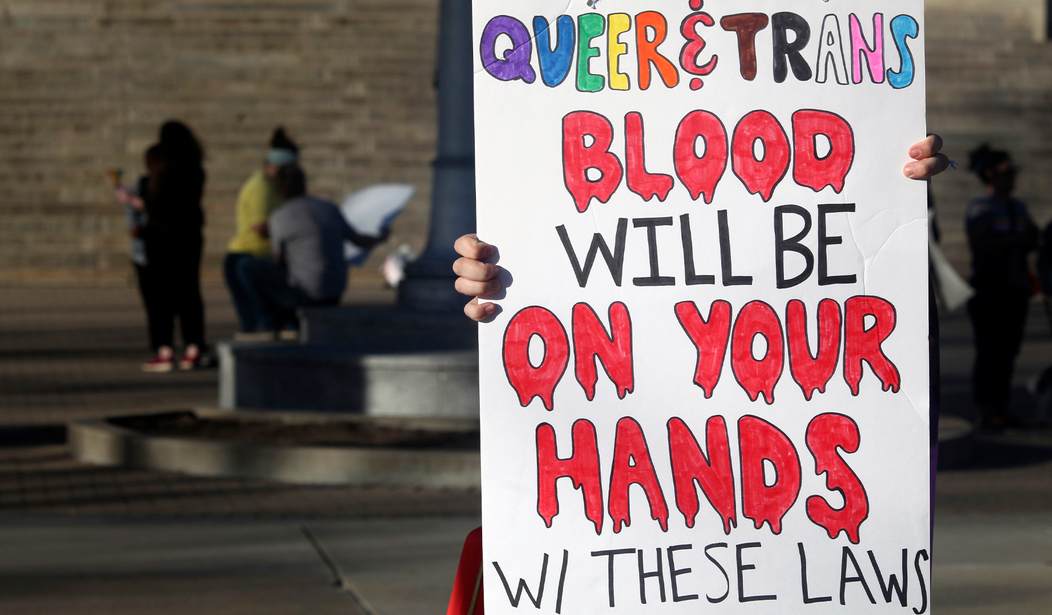We've covered the activities of WPATH (The World Professional Association for Transgender Health) here in the past. Their dubious interpretations of medical science, focusing almost exclusively on the burgeoning transgender medical industry have somehow become the "industry standard" recognized by other increasingly dubious medical associations like the AMA and the American Academy of Pediatrics (AAP). But recently revealed court documents demonstrate that the way they make their decisions and word their widely cited guidance for doctors and caregivers is heavily dependent on things completely outside of actual medical science. So what is it that drives their approach to developing and publishing medical guidelines? If your first guess was "money," give yourself a cookie. The Free Beacon reports that WPATH updated their standards of care in 20022 to describe hormone therapy and surgery for trans patients as "medically necessary." However, internal documents reveal that this language was added only to force insurance companies to cover the procedures.
The World Professional Association for Transgender Health (WPATH) asserted that cross-sex hormones and surgeries were "medically necessary" so that insurance companies would pay for those procedures, allowing concerns about the treatments' affordability to dictate claims about their effectiveness, newly unsealed court documents show.
WPATH's standards of care, which guide clinical practice in the United States, were updated in 2022 to include language about the medical necessity of hormones and surgeries because, as one WPATH official wrote in an email, the group was frustrated with America's "obtuse and unhealthy system of healthcare 'coverage.'"
Most private insurance plans and state Medicaid policies exclude procedures deemed elective or cosmetic.
As noted, the people who manage the nation's health insurance companies are smart enough to recognize that genital mutilation surgery is, at best, cosmetic surgery. (In reality, it is far more damaging and permanent than any conventional cosmetic surgical procedure.) The same goes for hormone therapy that is not designed to offset a valid hormone production issue in the patient's body and return their levels to normal. As such, most of them refused to cover these treatments. Also, trans medical treatments are outrageously expensive compared to more typical, established treatments for normal ailments. That's why the trans pipeline has turned into a medical industry worth billions of dollars every year and it's only growing larger.
Unfortunately, at least in this case, government regulations require insurance companies to set their coverage policies based on the best available medical information from professional associations. As long as associations like the AMA and the AAP define a given medicine or procedure as a "medical necessity" for patients, the insurance company would be required to cover it. That's where WPATH comes into the picture. Internally, they weren't talking about the "medical necessity" of these procedures. They were expressing their frustration with the "obtuse and unhealthy system of healthcare 'coverage.'" In case there's any doubt, when they say "coverage," they are talking about insurance, not the actual care or welfare of the patient.
Once WPATH made that change, the AMA and the AAP were given cover to say the same thing and include the language in their standards of care. Previous challenges to the insurance companies by trans patients in court had usually failed. It's obviously not a coincidence that as soon as these changes were entered into the standards of care, plaintiffs' attorneys began showing up with copies of those standards to use as ammunition and they began winning. So WPATH didn't do this for doctors or patients. They did it for the lawyers.
That clearly makes sense or, more accurately, dollars and cents. As I already mentioned, these transgender medical treatments are hugely expensive. Without having them covered by a patient's insurance company, many people are not going to agree to the treatment. This demonstrates two things for us with great clarity. First of all, if fewer people are signing up for trans surgery or hormone therapy, the trans medical industrial complex isn't raking in enough money, and we can't have that, can we? Second, and far more importantly, patients who couldn't afford the procedures were able to walk away and seek other options or forgo the changes entirely. And yet they were still able to move on and live their lives. If your doctor tells you that you have a dangerous form of rapidly progressing cancer that requires surgery and you turn up your nose and walk away, the odds are that you are going to die. Just let all of this sink in for a while and there should be few questions remaining about the scam WPATH has been running.








Join the conversation as a VIP Member